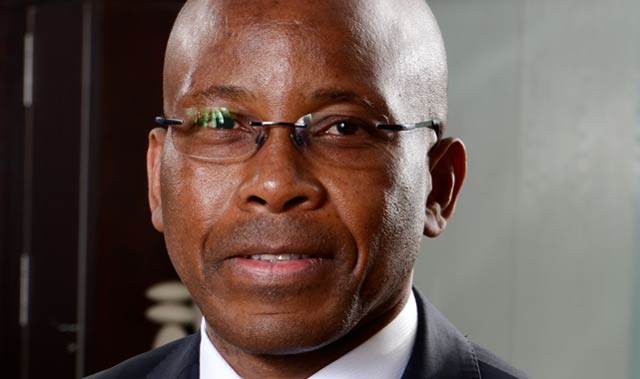 Operationally, the time-suck on executive leadership from the Nigerian fine fallout had nothing to do with its other units across Africa and the Middle East. It’s always managed to run its “OpCos” quite independently, which arguably has a few more negatives than positives. In fact, one of the goals of the “fundamental strategic review” announced on Friday is to improve “the way of work through increased coordination between different parts of the business”.
Operationally, the time-suck on executive leadership from the Nigerian fine fallout had nothing to do with its other units across Africa and the Middle East. It’s always managed to run its “OpCos” quite independently, which arguably has a few more negatives than positives. In fact, one of the goals of the “fundamental strategic review” announced on Friday is to improve “the way of work through increased coordination between different parts of the business”.
There is no direct link between what’s happening at MTN South Africa (or any of its other units) with what’s going on at MTN Nigeria. But for perception…
The replies to my tweet about the group’s R1,3bn bill for “professional services” to negotiate that Nigeria fine were surprising.
On one hand, some leapt to categorising these as “bribes” either explicity or implicitly (with lines like “hope they got invoices”). This is a serious reputational problem for MTN and, I guess, comes with the territory of trading in the West African country (which it is used to).
It must be noted that not only were these negotiations incredibly high profile, but they involved armies of lawyers in at least three countries, Nigeria, South Africa and the US. (Oh, and hiring former US attorney general Eric Holder does not come cheap!) And split that amount up across the seven months it took to deal with the fine, and suddenly it doesn’t seem as gigantic.
Far more concerning to MTN than these fanciful claims of “bribes” is the perception that it is hiking prices in its other markets to help pay for the fine.
Here in South Africa (but not only in this market) there’s a strange conclusion being drawn in many consumers’ minds that the Nigeria fine is to blame for the increases in contract and data prices locally both last year and this year. These have not been insignificant, with anything from a 2% to a 24% jump in the prices of the former, and 4% to 67% in the latter!
To be fair, in some cases these prices have not increased in over a decade. But customers effectively saw prepaid price increases in April last year, post-paid ones in May 2015, and then — bizarrely — data contract price cuts this May (on the same packages it had hiked a year ago), as well as voice rate increases on its contract packages and upward adjustments to daily and rush hour prepaid bundles.
The perception, rightly or wrongly, is that prices have increased and that MTN’s data prices (on prepaid, especially) are increasingly non-competitive.
A 500MB one-off (30-day) data bundle on MTN costs R105 (and includes 125MB additional data, valid for five days). But the same bundles on Vodacom and Cell C cost R99. Yes, you might be getting more data in the MTN bundle but not only is this promotional (until 31 December), it’s also largely hidden in the fine print. And MTN changed (reduced) the amount of extra “giveback” data as well as the validity of this bonus data in July 2016. Customers perceive MTN to be pricier.

Of course, this broader perception hasn’t been helped by a number of own goals scored by the local operation, many of which have roots in the management instability that has plagued it until last year’s appointment of Mteto Nyati as South African CEO.
“Network outages in some areas” directly impacted the unit’s performance in the first six months of 2016. Service revenue was up 0,7%, with data revenue (+19%) and device sales the only two bright spots. However, the latter is coming off an artificially low base given the impact of industrial action last year. Customers (and former customers) remember this strike, too.
The purchase of 50% of Afrihost was a costly (and unnecessary) distraction for management, and competitors have been slowly eating away at MTN’s market share in its core business (mobile telephony). Between 31 December 2015 and 30 June 2016, it lost 673 000 prepaid and 110 000 postpaid customers, while the three other networks continue to add subscribers, although amazingly, it still reports its market share at 32.3%. Those subscribers are going to be difficult to win back, and the only realistic way is going to be via price.
Never mind that MTN has been pushing to catch up to Vodacom after years of underinvestment in its network (the very aggressive expansion meant a 14% increase in costs in the South African business in the first six months of the year).
Perhaps the Ebitda margin of 30,1% for South Africa (from 35,6%) is a more realistic figure going forward? Strangely, MTN hasn’t changed its guidance and is still confident of adding 1,1m subscribers in South Africa this year.
The softness in its home market, coupled with an increasingly hostile perception among customers that profits from South Africa are being used towards settling the massive Nigeria fine, will only exacerbate a difficult turnaround. This rebuilding project is going to take a little longer, still.
- Hilton Tarrant works at immedia
- This column was originally published on Moneyweb and is used here with permission




